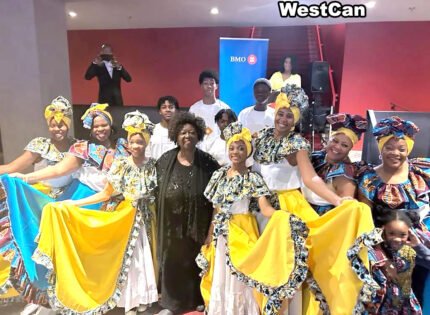by Rasta KEITH
The recent exchange of nuptial vows between the Duke and Duchess of Sussex will be remembered for various reasons for the rest of their lives by the millions of Earthlings who took the time off to view the pomp and pageantry. But as strange as it might seem, the marriage of the prince and the commoner has opened up some long-festering wounds among a noticeable segment of the black community. For although it appeared at first glance that everyone was happy for the newlyweds, there are those who feel that the occasion should be viewed as a cause of shame rather than of joy in light of the contention that Meghan’s in-laws have acquired their lavish fortune mostly at the expense of Black People.
Egbert Gaye of the Montreal Community Contact (05/24/2018), for instance, observes that: “The British monarchy is an incredibly rich institution, with an estimated total worth that goes easily beyond $1 billion… [and that] a great chunk of that wealth was acquired on the backs of Blacks and in some instances stolen from her [Meghan’s] ancestors, back in Africa and other spots around the world.” And Gaye echoes the view of the Vice Chancellor of the University of the West Indies that “the Royals and Britain owed Caribbean nations an estimated £76 billion or about US$100 billion [in reparations].”
Writing in the Grenada weekly, Now Grenada (05/25/2018), Arley Gill sighs over the fact that although he has the greatest admiration for Harry and Meghan, he could not resist opining that the expenditure on the wedding could have been better used to feed the poor. He notes, further, that rather than becoming enthralled by the extravagance of a royal wedding, Black People should be spending their time seeking “reparations for us as an African People – for our displacement and exploitation by the English and their royal family…”
Gill continues that: “Indeed, these lavish ceremonies are a reminder of how our own forefathers made it possible for these generations of royals to live well. It is no consolation that Harry’s wife Meghan – now referred to as the Duchess of Sussex – is a descendant of Africans. To my mind, the lavish ceremony must be a motivation for us to get what is rightfully ours – reparations! Reparations for our people so we can marry our children with a little more pomp and splendour.”
And Gaye and Gill might indeed be right that if ever there is a case in which the payment of reparations might be deemed justifiable, the plight of Black People should be at the very top of the list. And one does not have to be a rocket scientist or Nobel Laureate to appreciate why this must be so. For throughout history, nations have always been made to make amends to other nations for wrongs that would have been done by paying money to those who were wronged. And as the historical record clearly shows, Black People have undeniably been wronged by white people and other ethnic groups.
The most notable case in history of a country having to pay reparations is that of Germany which was required to pay tens of billions of dollars in reparations after both world wars. As recently as 1988, U.S. President Ronald Reagan signed the Civil Liberties Act which provided for reparations to be paid to Japanese who had been detained in America during World War II; with each of the surviving detainees walking away with US$20,000 after all was said and done.
As Gaye observes, however, there is absolutely no indication that the British, or any of the other nations which have engaged and are still engaged in the wanton pillaging of the African continent and the subjugation and exploitation of Black People, have any inclination toward making any kind of meaningful compensation for the inhumanity meted out to the wronged parties in this case. And it seems that Black People or, more precisely, black political and religious leaders are just as complicit as their white peers in perpetrating that kind of injustice against the African People.
Gaye notes, more precisely, that Tony Blair, a former Prime Minister of Britain, has attempted to explain away the enslavement of Africans on the ground that the institution of “slavery” was legal. What Tony Blair seems to be clearly oblivious of, however, is that while most people have been duped by the mistaken assumption that anything and everything sanctioned by law must be right, nothing could be further from the truth. For the only real source of the authority behind any law is the ability of the lawgiver to enforce the law through the coercion of those who are made subjects of the law.
When German troops invaded Poland in 1939, they did so only on the presumption that they had the full backing of the Fuhrer (Adolf Hitler) who, as the Chancellor of the Third Reich, felt that he could have backed up the legality of his orders by his huge military machine. It is partly on the basis of such a vengeful model that many theologians attempt to portray God and to establish certain moral tenets. And the powerlessness of the United Nations (U.N.) compared to the might of, say; the United States, Russia or China might be viewed through the same lens. For although the 193 members of that world organisation might hem and haw as much as they wish over the Palestinian issue or other similar matters, the U.N. has no real power to enforce its demands.
The forefathers of Prime Minister Blair and Prince Harry knew that only too well when they passed laws giving themselves the power to enslave Africans, and to subsequently divide up the continent of Africa among themselves and other European nations. Just recall the old adage “Rule Britannia! Britannia rule the waves.” (By the way, forget the legal doctrine that no one should profit from crime. For the framers of the Law have already seen to it that such kinds of provisions do not apply to them.)
Americans, too, are very cognizant of this kind of social dynamics. And that is why they are the only country which has ever used atomic bombs in a military campaign. And why, despite their possession of an arsenal of over 70,000 nuclear warheads at peak production, they are adamant that no one else should possess even a single nuclear bomb. (Yes! Gunboat diplomacy is very much alive and is readily resorted to when carrots and sticks fail to do the job.) Thus, as Swamp Dog, made famous by the tune “Sam Stone”, has so cleverly satirized in his song by the same name, “God Bless America.”
The only ethnic group which seems unaware of the actual force behind legal decisions are Black People. And so, as black political and religious leaders bask in their false sense of parochial security and continue to procure all of their military technology and other “stuff” from the very peoples who had colonized them, anyone who might still be thinking that Black People could have any meaningful impact on world affairs or on any type of convention or precedent with respect to the legality of slavery or other salient matters must be living in a fool’s paradise.
Case in point involved a Grenadian national who had been brazen enough to try to compete with the likes of Barclays Bank DCO and other established institutions in the banking industry. To make a long story short, after the gentleman’s application for a licence to engage in international banking had been denied, he attempted to divest the funds at his disposal in other enterprises. Lo and behold, however, he was immediately dragged before the court on seven counts of fraud. And it should have come as no surprise to anyone that the aspiring local banker had been given the maximum sentence on each count based on certain precedents established by a particular jurist of the British House of Lords.
But, apart from such legal considerations, there seems to be a number of even more pertinent grounds on which any petition for reparations for slavery might be denied. As would be required in any case involving a demand for reparation, the petitioner must sufficiently establish that a substantive wrong had been perpetrated by the respondent. As such, anyone having the slightest interest in the matter might agree that the condescending attitude displayed by a number of black political leaders toward their former “masters” and “mother country” with respect to the Windrush Affair during the recent Commonwealth Heads of State meeting might only serve to further weaken any case for reparation.
Furthermore, as history records, Cecil Rhodes and other European “colonists” had gone to Africa to save the “savages” from perpetual damnation through the gift of Christianity. Accordingly, since Black People seem to greatly delight in the apparent benefits which they have gained from their adopted religion, it would be extremely difficult to imagine of how any attorney, including the late Jonny Cochran, might be able to convince a court of law that Black People had been wronged by their European enslavers.
And the matter of Black People being awarded reparations for the wrongs which had been perpetrated against them could be further complicated by their blind adoption of the nomenclature used by the former enslavers. For contrary to popular opinion, our forefathers had never been “slaves” or even “African slaves”. For “slavery” is essentially a state of mind as is very much the case in today’s society. Instead, the millions of folks who had been forced to make the gruesome trip across the Atlantic Ocean from Africa to the Americas and the West Indies were enslaved Africans who had been kidnapped and held in bondage by means of chains, yokes, whips, mutilation, rape and some of the most heinous measures ever known to mankind. And so, while “slavery”, as practised by the Pharaohs, might have been legal, the enslavement of Black People must be regarded as a horse of a different colour.
Accordingly, since “slaves” were not recognised as being fully human until long after the adoption of the U.S. constitution, those who might be contemplating the pursuance of the issue of reparations for “slavery” would be well advised that their success in proving standing in the matter might depend to a great extent on the type of language used in identifying the aggrieved parties.
Booker T. Washington, the black scientist made famous for his invention of peanut butter, tells the story of a ship stranded on the oceans and drifting for weeks without a supply of fresh water. Then, just as despair was about to finally overtake the entire crew, a passing ship responded to their S.O.S. with the advice that the desperate mariners should drop their bucket exactly where they were. What the stranded sailors had not realised all along was that they had eventually drifted away from the salty water of the ocean onto a fresh water lake.
The moral of the story, therefore, is that rather than Black People construing the marriage of Harry and Meghan as a motivation to sue for reparations for “slavery”, the event should be seen as an incentive for them to develop a new consciousness in a spirit of African unity; with a clear understanding that Africa is the most resourceful country in the world and that the most valuable resource of any country is its people. For, given the slavish mentality that most Black People manifest, even if they were to be awarded trillions of dollars, such payments would find their way right back to the donors in little or no time, since Black People would still be purchasing their cars, fridges, smart phones, wigs, guns, and all of their other daily wants and needs from the sons and daughters of their former and current enslavers.















